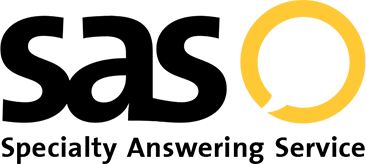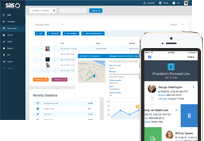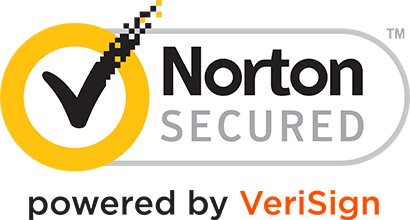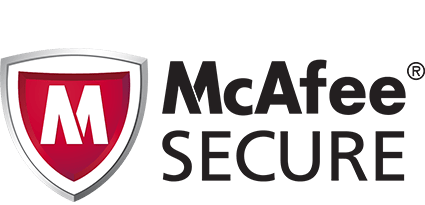- Log In
- Support
- Company
- Contact Us
- Live answers @ 1-888-532-4794
11 Sources of Funding for Small Businesses Infographic.

Finding the right source of funds to start up your small business can be hard. Besides having the next great idea, finding money to help grow that idea is usually the first problem small business owners and entrepreneurs will face. Since there are many different funding options to choose from, it can be frustrating finding the method that will work for you and your startup. From choosing a method of funding, to building your brand, to actually keeping it afloat is a daunting task for even the most eager entrepreneur.
As an answering service for small businesses, we want all of the bootstrapped businesses we answer for to succeed. That’s why we created a guide to assist you in finding the right source, or sources, of funding that will help drive your small business towards success. In this guide (as well as the infographic that follows), we’ve listed 11 sources of small business financing. The list progresses from more conventional and proven ways to fund a business, to those that you should initially avoid until your business gains some traction.
Personal Nest Egg Method
What is it:
- Dipping into your own savings
- Borrowing from friends and/or family
Pros:
- It’s affordable and hassle-free
- With a vested interest, you are more likely to be serious about making your small business a success
- There is a better chance of attracting other investors later, as you have put your money where your mouth is
Cons:
- If your start-up fails, you don’t have a financial backup to tap into
- When borrowing from family and friends, misunderstandings or a failed business can mean financial strain and ruined relationships
Pro tip: When borrowing from friends and family, have a formal agreement rather than a verbal one. In addition, you’ll need to decide if it will be a loan or if you will give them some of the profits.
Crowd Funding Method
What is it:
- Funding from the general public
- Sites like GoFundMe and Kickstarter specialize in this
Pros:
- You retain control over decision making
- If you have other creative ideas to incentivize backers, you don’t need to give away equity in your company.
Cons:
- Convincing a large group of mostly unknown people about the viability and prospects of your idea can be tough
Pro tip: Make sure to include a professional video in your crowd funding campaign. Campaigns with a pitch video raised 239% more money than those without one.
Angel Funding Method
What is it:
- Funding from a wealthy individual
- Usually in exchange for equity in the company
Pros:
- You’ll have early stage funding along with mentoring
- A lot of angels even take up an active operating role in the company
Cons:
- You often have to shell out a large equity stake for a very low valuation
Pro tip: Look for an angel investor whose business ideals match yours. It is not just about the amount of funds you can generate, but the additional value the angel brings to the table.
Government Grants
What is it:
- A loan given by the governement
- Small Business Technology Transfer (SBTT) and Small Business Innovation Research (SBIR) are two common examples
Pros:
- You don’t have to pay it back
- You are not diluting stake in your company
Cons:
- It’s best suited for technology and research oriented start-ups
- The application process and filtering criteria can be stringent
Pro tip: When applying for grants, hedge your bets. Multiple agencies may be interested in the same technology but for different applications. In addition, it’s a good idea to hire a consultant to help you navigate the complex application process and paperwork.
Bank Loans
What is it:
- Receive funding from a bank
- Credit unions are great for small businesses
Pros:
- Loans come in all shapes and sizes, so you will most likely find one that suits your needs
- Having a pre-approved overdraft facility with a bank can be a great cash flow cushion
Cons:
- There are stringent qualification criteria and documentation requirements
- Depending on the nature of the loan, there may be a lien on your assets, raw materials and finished goods
- They may want a personal guarantee, which would mean your personal assets could be at risk if the business fails
Pro tip: Approach smaller community banks as opposed to large banks that may have strict qualifying criteria and documentation requirements.
Small Business Administration Loans
What is it:
- Not actually lent by the SBA, but by other financial institutions that is approved by the SBA
- Most popular type of financing
Pros:
- Up to 85% is guaranteed by the government
Cons:
- There are some restrictions on the usage of funds. You cannot pay off creditors, cash out investors, or invest in real estate
Pro tip: Before applying for the loan, be clear on what you will use the funds for.
Venture Capitalists
What is it:
- Investors who provide capital to startup companies
- Similar to angel funding
Pros:
- Most venture capitalists also offer mentoring and bring with them a wealth of prospective clients in addition to funding
Cons:
- You will have to give up a share of your business
- They will want a clear exit plan, at which point you will have to go public or buy back the stake
Pro tip: Venture capitalists are typically interested in game changers or high growth businesses. In addition, be prepared for the change in power dynamics during board meetings. Your business will no longer be “your baby.”
Asset Backed Lending
What is it:
- Allows you to secure a loan for an asset
- Assets may include a vehicle or machinery
Pros:
- You can spread your cost against the productive lifetime of your purchase
Cons:
- Such an agreement effectively means that you rent the machinery or asset from the lender until you have paid off your loan
- You have to demonstrate that your business can afford the asset, and try to show how securing the loan will support the growth of your business
Pro tip: Asset finance can spread out your costs but beware that such a loan can be accompanied by high interest rates
Factoring or Borrowing Against Receivables
What is it:
- Selling your accounts receivables (outstanding invoices) to a 3rd party for a discount
- Helps free up capital that is stuck in unpaid debts
Pros:
- The invoices can be for anything from manufactured goods to medical services
Cons:
- Factors have the first lien on cash flow, so factoring is difficult if there is a judgement against your business, or if the bank has a blanket lien on your assets.
Pro tip: Some banks have factoring practices, and there are many established stand-alone factoring firms
Purchase Order Financing
What is it:
- Financier that fronts money and takes a cut of the check afterwards
- The financier could pay a portion of the total cost of supplies or 100%
Pros:
- You can leverage purchase orders for cash or credit advances to your suppliers
- You can accept new business from clients even when you don’t have the operating capital to fund the job
- It’s a great option for companies who have average credit
Cons:
- Because the PO shop assumes the supply-chain risk, the cost of those funds is typically steeper than what factors might charge
- PO shops prefer to work with wholesalers and distributors
Merchant Cash Advances
What is it:
- Allows financiers to give cash today in return for a % of their future credit card sales
- Offers fast access to capital
Pros:
- Unlike a loan, which is fixed over a set period of time, MCAs involve a target repayment amount, collected over as long a period as necessary until it’s paid off.
Cons:
- Deals are structured so that based on a customer’s past performance, the MCA shop gets its money back – plus a handsome return – in 6 to 9 months
Geographic Expansion
The last stage in your business venture would be the geographic expansion of your company. This occurs when you are ready to expand to other geographic locations and is more relevant for physical products and brick and mortar establishments. However, if you sell a digital product online the entire world is your customer base.
If you’re writing about sources of funding for small businesses on your own website, please copy the code below to use this infographic:
[html]
<img title=”Sources of Funding for Small Business Infographic” alt=”Sources of Funding for Small Business Infographic” src=”https://www.specialtyansweringservice.net/wp-content/uploads/sources-funding-small-business-infographic/sources-of-funds-small-business-infographic.jpg” width=”1024″ height=”13256″ />
<pre><em>Image originally posted on <a href=”https://www.specialtyansweringservice.net/sources-funding-small-business-infographic/”>The SAS Blog</a></em>
[/html]
Categories
- Advice (32)
- Answering Service 101 (18)
- Best Practices (10)
- Call Center Jobs (6)
- Call Center Software (20)
- Comparison (2)
- Customer Service (30)
- Funny (31)
- Holidays (19)
- Industry Hacks (19)
- Infographics (53)
- International (1)
- Medical (8)
- News (12)
- Phone Etiquette (2)
- Phones (14)
- Pricing (8)
- Quizzes (3)
- Receptionist (11)
- SAS Products (29)
- Scripting (4)
- Services (5)
- Small Business (25)
- Starting Up (7)
- Tips and Tricks (19)
- Uncategorized (1)
- Videos (19)
- Workplace (6)
Recently writen
- Call Center Script Best Practices: Advanced Script Block Tips to Optimize Your Answering Service
- January 2025 Release Notes – Adjustments to Call Details Timeline, New Scripting Updates, Live Transcription, and more!
- April 2024 Release Notes – Voicemail Greetings, Ability to Access Websites With a Username and Password, and more!
- March 2024 Release Notes – New Add-On, Settings Revamp, and more!
Follow Us
How about a demo?
We'll show you how our web portal works and answer any questions you have about SAS.
Schedule a demo








